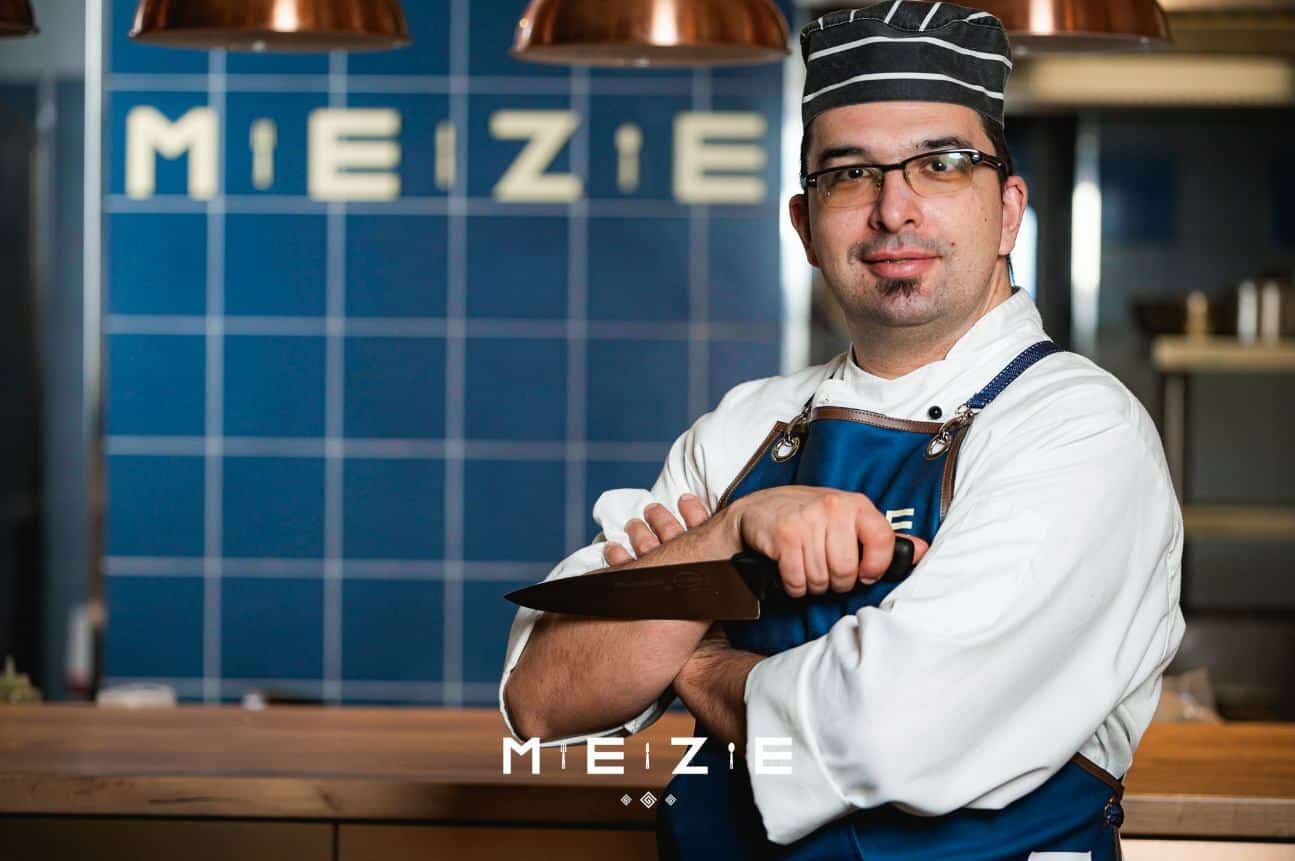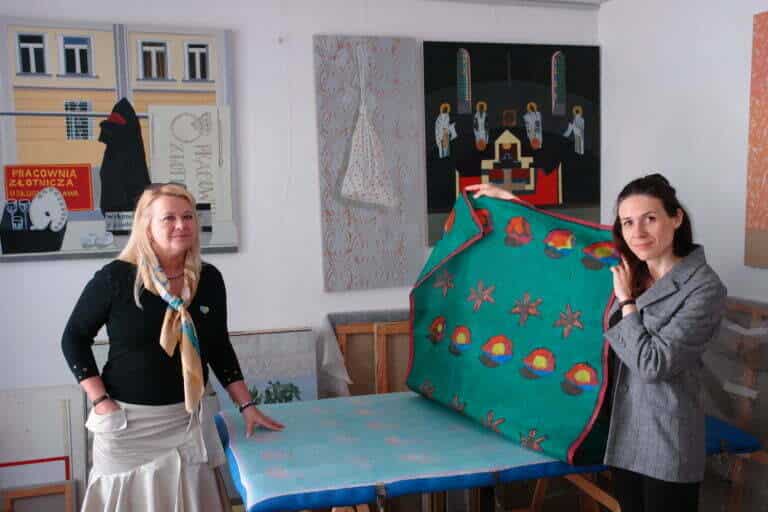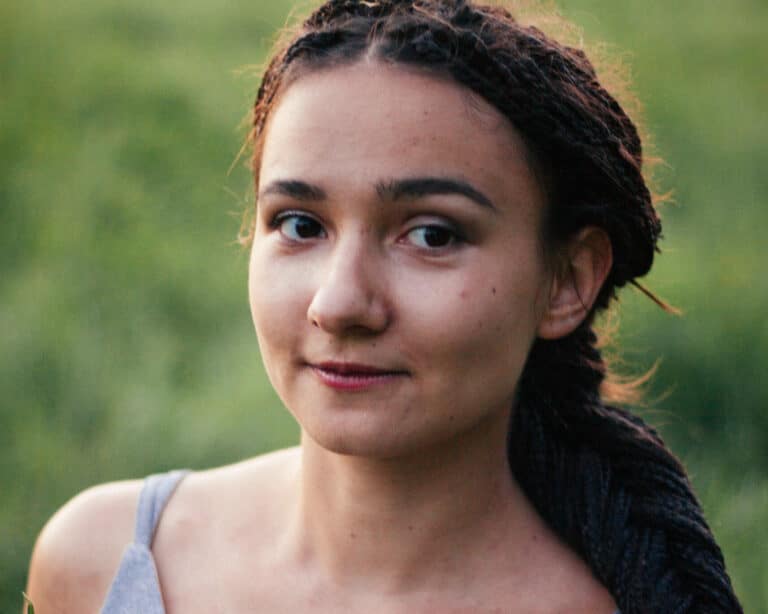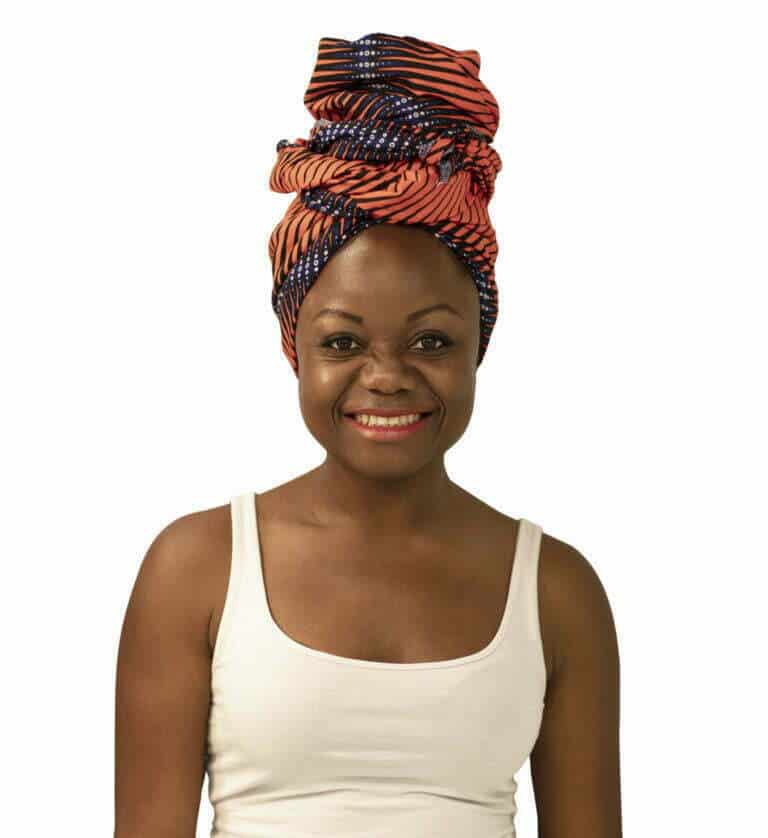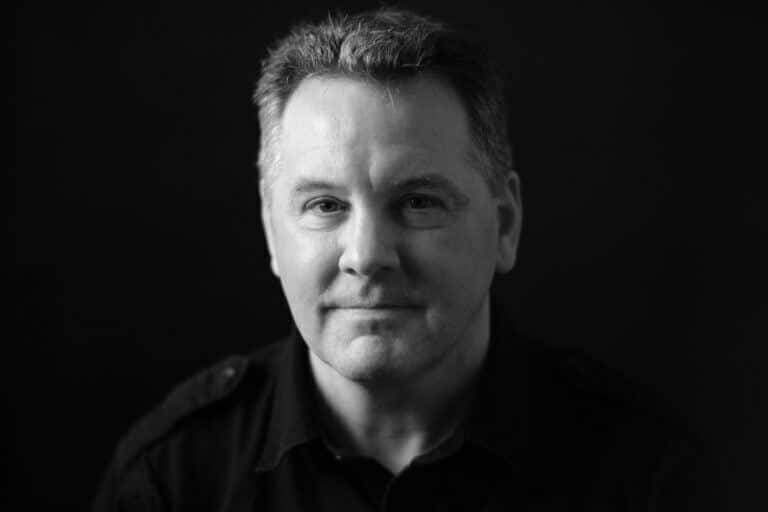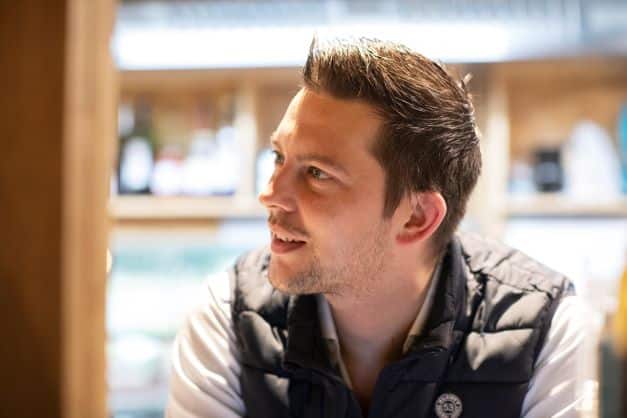It’s not all Greek to me
Andreas Samartzis is a 35-year-old chef from Astros Kynourias in the Peloponnese, Greece. He’s been living and working in Poland for the past 14 years – at first in Gdynia and later on in Warsaw. Privately a husband and a father of two.
Your Polish is really good. Did you study for a long time?
Thank you, I learnt it by myself. I didn’t take any course so it took me two years.
What is the story of you coming to Poland?
I was working in Korfu and that’s where I met my wife. She is Polish and we decided to live together here. Right after coming to Poland I found a job in Gdynia where I was working at first as a cook, and then as a sous-chef. Two years later I moved to Warsaw and during my time here I was promoted to the chef’s position. At my current restaurant I’ve been working for one year now. I’m really happy with this job even though it gets really busy and I have a lot to deal with every day. My life pretty much revolves around my job right now but that is good.
You speak fantastic Polish and your professional life is going very well here. But what was the biggest challenge you had to face in Poland?
The hardest part of my life here is probably the fact that I live in Warsaw and my wife with kids in the Lesser Poland. Due to the circumstances we cannot live in one place and it is really difficult for us. As a chef in a restaurant I have a lot of responsibilities and it is impossible for me to take a weekend off to see my close ones, at least not as often as I would like. We have two wonderful sons – Nectarius who is 7 years old and Gabriel who is 5. When I can go home it’s really wonderful and boys are very happy. Me and my wife we’re going to celebrate 9 years wedding anniversary this summer but this situation is really not easy for us and we are still looking for the solution.
What did you expect when you first decided to come to Poland? Did our country surprise you in some way?
Yes. When I told my dad I was going to live in Poland he thought it was a terrible idea. He actually said that there was nothing here for me, that Poland is a post-communist, backward country and no place to build my future at. He couldn’t be more wrong. When I came here in 2009 and I wanted to pay with my card, I saw something I had never seen in Greece before – contactless payment /laugh/. My sister and my brother visited me here soon after I started working in Gdynia and they were shocked when they saw me using my card like this /laugh/. We are all about culture, tradition and heritage and so – as they say – Greece is a thousand years behind, Poland – a thousand years ahead /laugh/. But on more serious note – I met a lot of Poles at work back in Greece and I always liked working with them more than with Greeks. They had completely different attitude – more energy, passion and also ambition. It kind of made me think of Poland in certain way that turned out to be very true when I came here.
What do you miss the most about Greece?
My family. I have two sisters and one brother. My parents also still live in our hometown. I haven’t been able to visit them for five years now but I’m going to very soon. In December my little sister is getting married and this isn’t something you can just miss. Family is very important for Greeks. Just like for Poles.
Do you find Poles and Greeks to be much alike? Or are we very different?
I would say mostly different. We share the family values, but that’s the most we have in common. For example Greeks don’t drink as much as Poles. Polish people seem not to know their drinking limit – after alcohol they become too loud and sometimes even rude or aggressive. On the other hand Greeks in the restaurants will never tip you right. They’ll leave behind some loose change from the wallet but they won’t pay any attention to working people or service, which is something you cannot say about Poles – they are far more generous. I would also say that Poland has very special ‘female’ culture. Greek women react very differently to everyday situations. They are for sure much more emotional and not so consistent with their decisions. Polish women are more rational and solution-oriented. They listen more and the communication is just much easier. There is also much more natural beauty that you can see on the streets here. Greek women wear a lot of make-up all the time.
You specialize in Greek cuisine but what do you think about Polish food?
I love it, especially krupnik, żurek and gołąbki. I am not a big fan of kaszanka though. I have a bit of a sweet tooth and Polish desserts are really something. Makowiec or Polish apple pie – I could eat it all the time! I don’t really cook Polish dishes but my mother-in-law does. And she is really good at it.
What else do you like about the life in Poland?
Something that is impossible to come across in Greece – very good organization in public offices and easy access to information. Filing your paperwork is easy for a foreigner here. And if there is something missing you can really count on the help of people in the Foreigner’s Office. Plus – you can find all detailed information online. Everything is clear and easy. Dealing with formal issues also doesn’t take as much time as it does in Greece.
Do you plan to stay in Poland or are you thinking about change?
I’ve been living in Poland for 14 years now. I have a job and family here. I like this country. But the truth is I miss home. I am in between two places and it is really hard to make a decision. Greece is and always will be my true home. I miss my family and I miss the sun. Winters in Poland are hard on me – when I go to work it’s dark and when I leave it’s also dark. You can almost loose your hope to see the sun again /laugh/. But there is one thing I cannot really have in Greece and it’s the steady, well-paid job. Summer season is good there, but after that it becomes difficult. When you have children priorities shift and a good secure employment is absolutely necessary. So I guess we will see what the future holds for us.

